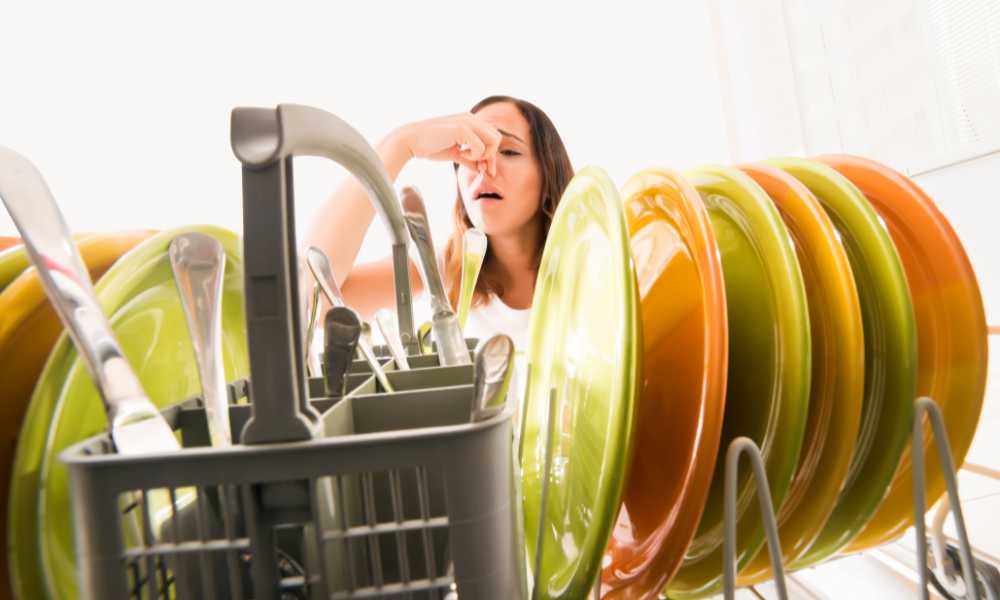If you’ve ever opened your dishwasher only to be greeted by an unpleasant odor, you’re not alone. Why does my dishwasher smell is a question many homeowners ask, and it’s a common issue that can affect the performance and cleanliness of your appliance. Dishwashers are designed to remove food debris and clean your dishes, but sometimes they become a breeding ground for bacteria, mold, and mildew, which contribute to foul smells. In this article, we’ll explore the main causes of dishwasher odors, including food build-up, mold, and clogged drains, and provide effective solutions to keep your dishwasher smelling fresh and running smoothly.
Common Causes of Dishwasher Odors
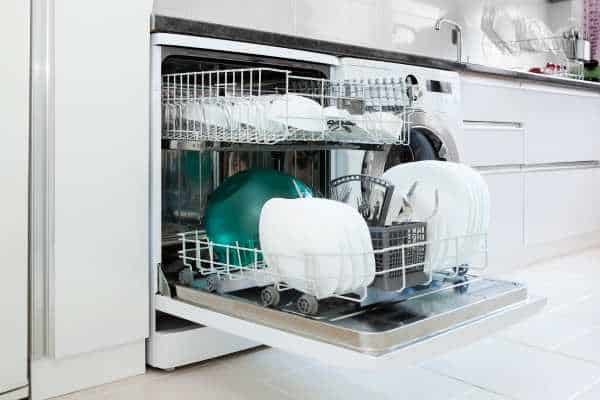
Why does dishwasher smell? There are several common causes of unpleasant odors in your dishwasher. Food particles left behind in the Dish cleaning machine can decompose, causing foul smells. Mold and mildew growth is another culprit, as the warm, damp environment is perfect for these bacteria. A clogged drain hose or dirty filter can also trap food and water, leading to stagnant odors. Additionally, standing water in the bottom of the dishwasher can contribute to the smell, as it creates a breeding ground for bacteria. Identifying these issues early and addressing them can help you maintain a fresh-smelling, efficient Dish cleaning machine .
Food Residue and Debris Build-Up
One of the most common reasons your dishwasher smells is food residue and debris build-up. Leftover food particles can get trapped in various parts of the Dish cleaning machine, such as the spray arms, filter, and bottom of the tub, causing unpleasant odors. These particles decompose over time, leading to a foul smell. To prevent food build-up, scrape off large food scraps before loading dishes and rinse heavily soiled items. Regularly clean the spray arms and remove any trapped debris from the filter. Running a quick rinse cycle without dishes can help flush out small particles, keeping your Dish cleaning machine fresh and odor-free.
Mold and Mildew Growth
Mold and mildew growth is a common cause of dishwasher odors. The combination of moisture and warmth inside the dishwasher creates the perfect environment for mold to thrive. If you notice a musty smell or visible black spots around the door seal, these are signs of mold or mildew growth. To prevent this, leave the Dish cleaning machine door slightly ajar after each cycle to allow proper ventilation. Regularly clean the door seal, and use a vinegar-based solution or a commercial cleaner to eliminate any existing mold. Keeping your Dish cleaning machine dry and clean will help prevent future growth and keep your appliance smelling fresh.
Clogged or Dirty Drain Hose
A clogged or dirty drain hose can be a major cause of unpleasant smells in your dishwasher. The drain hose plays a vital role in directing wastewater out of the Dish cleaning machine, but when it becomes clogged with food debris, grease, or soap buildup, it can lead to stagnant water and foul odors. Symptoms of a clogged drain hose include slow draining, standing water at the bottom of the Dish cleaning machine, or bad smells. To fix this, check the hose for blockages, clean it with a pipe cleaner or mild detergent, and replace it if necessary. Regular maintenance of the drain hose can prevent unpleasant odors and improve Dish cleaning machine efficiency.
Dirty Filters
Dirty filters are one of the main causes of unpleasant odors in your dishwasher. Filters play a crucial role in trapping food particles and debris during the wash cycle, preventing them from circulating back onto your dishes. Over time, these filters can become clogged with food residue, leading to bacterial growth and foul smells. Regularly cleaning your dishwasher’s filter is essential to maintaining a fresh-smelling appliance. To clean it, simply remove the filter, rinse it under warm water, and use a soft brush to scrub away any debris. If the filter is damaged or too clogged to clean, replacing it will restore optimal Dish cleaning machine performance and eliminate odors.
Standing Water in the Bottom
Standing water at the bottom of your dishwasher is a common cause of unpleasant odors. When water doesn’t drain properly, it can become stagnant, leading to foul smells. The most common reasons for pooling water include clogged filters, a blocked drain hose, or a malfunctioning pump. Leftover food particles and grease can also contribute to this issue. To fix standing water, start by cleaning the filter and checking the drain hose for blockages. If the problem persists, inspect the pump and consider calling a professional for repairs. Regular maintenance can prevent water from pooling and keep your Dish cleaning machine smelling fresh.
How to Clean Your Dishwasher and Eliminate Odors
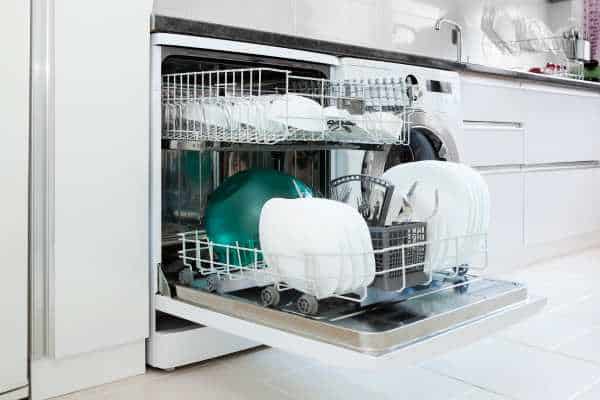
To eliminate odors from your dishwasher, start with a deep clean. First, remove any debris or food particles from the bottom of the Dish cleaning machine and check the filter. Clean the filter by rinsing it under warm water. Next, run an empty cycle with a cup of white vinegar placed in the top rack. This helps remove grease and food residue. After the vinegar cycle, sprinkle baking soda on the bottom and run another short cycle. This will neutralize odors and freshen the interior. Finally, wipe down the door seal and edges with a damp cloth to remove trapped moisture and prevent mold growth.
Using Vinegar and Baking Soda for a Deep Clean
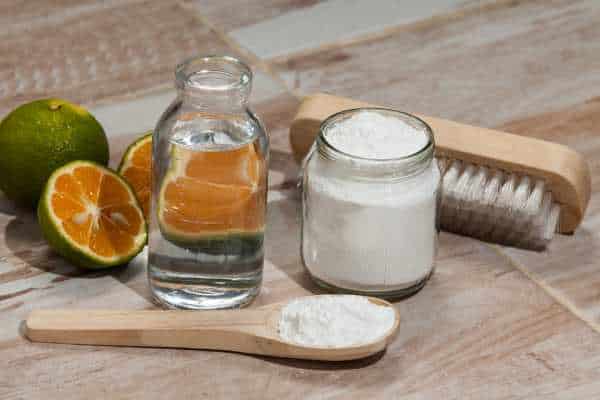
If you’re wondering “Why does my dishwasher smell?”, vinegar and baking soda can help eliminate odors naturally. These ingredients are known for their ability to break down grease, food particles, and mold, making them excellent odor removers. To perform a deep-cleaning cycle, simply place a cup of white vinegar in a Dish cleaning machine-safe container on the top rack, then run a hot cycle. Afterward, sprinkle baking soda on the bottom of the Dish cleaning machine and run another short hot cycle. This combination will not only neutralize unpleasant smells but also leave your Dish cleaning machine fresh and sanitized. Regular use of vinegar and baking soda can prevent future odor buildup.
Using Dishwasher Cleaning Tablets and Commercial Cleaners

Using dishwasher cleaning tablets and commercial cleaners is an effective way to eliminate odors and keep your appliance in top condition. These products are specifically designed to target grease, mineral buildup, and food residue that can lead to foul smells. When using commercial cleaners, it’s important to follow the manufacturer’s instructions to ensure safe application. Simply place a cleaning tablet in the dishwasher’s detergent compartment or run a cleaning cycle with a liquid cleaner to break down stubborn grime and neutralize odors. Regular use of these specialized cleaners will help maintain a fresh-smelling Dish cleaning machine and prevent the buildup of bacteria and mold.
Preventative Measures to Keep Your Dishwasher Smelling Fresh
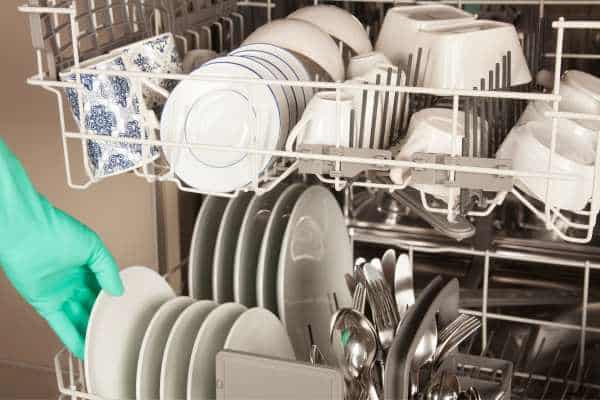
To prevent future odors in your dishwasher dishwasher smell, regular maintenance is key. Start by cleaning the filter monthly to remove food particles and debris that can cause smells. Run a hot water cycle with vinegar or a Dish cleaning machine cleaner to eliminate any lingering odors and bacteria. Make sure to leave the door slightly open after each wash to allow moisture to escape and prevent mold growth. Properly load your dishes, avoiding overcrowding that can block water flow. Additionally, regularly wipe down the door seal and gasket to prevent moisture buildup. Following these simple steps will help keep your Dish cleaning machine smelling fresh and running efficiently.
Proper Loading of Dishes
Improper loading of dishes is a common cause of dishwasher odors. When dishes are stacked too closely together or incorrectly placed, water can’t reach all surfaces effectively, leaving food residue behind. This build-up of debris can quickly lead to unpleasant smells. To prevent this, ensure that dishes are loaded with enough space between them for optimal water flow. Place larger items, like pots and pans, on the bottom rack, and avoid overcrowding. Arrange bowls, cups, and plates on the top rack, ensuring they face downward. This arrangement allows water to circulate properly, preventing food residue buildup and keeping your Dish cleaning machine smelling fresh.
Drying the Door Seal and Gasket
A dry door seal is essential in preventing moisture-related odors in your dishwasher. Moisture trapped in the seal can lead to mold and mildew growth, creating unpleasant smells. To maintain a fresh-smelling Dish cleaning machine, make it a habit to regularly clean and dry the door seal and gasket after each cycle. Simply wipe down the seal with a soft cloth to remove any excess moisture, and leave the door slightly ajar to allow air circulation. For deeper cleaning, use mild soap and water to eliminate grime buildup. Regular maintenance of the door seal will keep your Dish cleaning machine odor-free and running efficiently.
Conclusion
If you’re wondering “Why does my dishwasher smell”, it’s likely due to common issues such as food debris, mold growth, clogged filters, or a dirty door seal. By regularly cleaning and maintaining your Dish cleaning machine —especially the filter, drain, and door seal—you can prevent odors from developing. Simple practices like wiping down the door seal, running cleaning cycles with vinegar, and properly loading your dishes can keep your Dish cleaning machine smelling fresh and performing well. If the problem persists, it may be time to consult a professional. A little maintenance goes a long way in ensuring your Dish cleaning machine remains clean, efficient, and odor-free.

